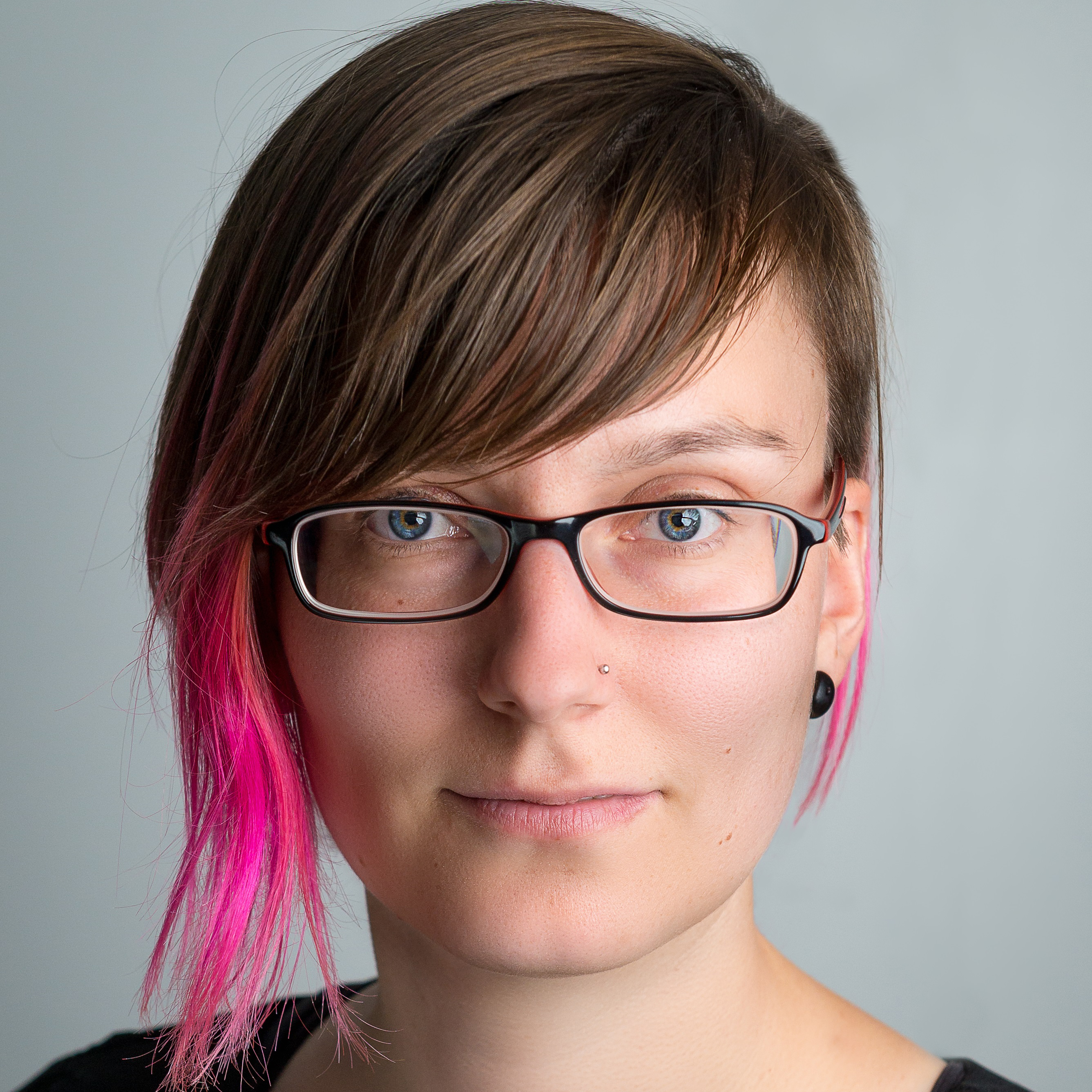#VIS4DH
We invite contributions for the 2018 Workshop on Visualization for the Digital Humanities. This will be a full-day workshop taking place as part of IEEE VIS 2018 in Berlin, Germany.
The purpose of this workshop is to propose new research directions in visualization for the digital humanities, to familiarize the visualization research community with the problems faced by digital humanities researchers, and to foster future collaboration between visualization and digital humanities research.
Despite the growing popularity of digital methods for research in the humanities, digital humanists are underserved by academics in visualization, and under-represented in visualization conferences. This is due to a number of factors:
- The differences in rhetorics of proof and discovery (and so differences in data culture and use) in the humanities as opposed to other, typically scientific or analytic fields where visualization research is commonly focused.
- The difficulty of performing task analysis and evaluation for many humanities questions, that may have no ground truth.
- In text visualization specifically, the difference between the needs of digital humanists (who perform close readings and critical engagements with texts) as opposed to more standard text visualization scenarios (e.g. text analytics on datasets for intelligence or social media analysis).
The focus of this workshop is on applied visualization in the digital humanities, as well as highlighting domains in the digital humanities with unmet visualization challenges. These applications and domains include, but are not limited to:
- Literature
- Philology and Linguistics
- Art and Art Criticism
- Political Science
- Performance (Music, Dance, Film, and Theatre)
- Cultural and Historical Studies
We are especially interested in a number of open questions in this space, including:
- The impact of visual analytics systems on research in the digital humanities:
- How can interactive visualizations support new questions, and new scales of research, in the DH community?
- How can we encourage DH scholars to seek out visualizations, or collaboration with visualization researchers?
- Characteristics of visualization for the digital humanities:
- How does visualization with a DH focus differ from general research in the visualization community?
- How do their user groups differ? How can debates in public humanities scholarship inform DH visualization practices?
- How can we remove obstacles for humanities scholars wanting to use visual analytics approaches for their research?
- How digital humanities research questions and tasks can push the frontier of visualization research:
- What challenges are there for developing systems with novelty in both visualization and DH communities?
- How do we evaluate visualizations where we lack ground truth data?
- How can we build bridges between salient issues in the humanities (uncertainty, interpretative complexity, critical theoretical approaches) and the conceptual languages of visualization?
Based on the result of last year’s panel and paper discussions, this year, we invite contributions focused on common problems in digital humanities projects, such as:
- Blending Close and Distant Reading
- Supporting Serendipitous and Guided Discovery
- Linking Outside Resources into Analysis
- Aesthetic Experiences
- Annotation of Resources
Addressing these difficulties requires exposure of these data issues, interdisciplinary collaboration, and steering of future research directions.
For more information, please see our call for papers.

Workshop Schedule
| 09:00 - 09:15 | Opening and Recap - Vis4DH in Review
Welcome note by the workshop OC. |
| 09:15 - 10:10 | VIS-Keynote by Miriah Meyer
45-minute talk, 10 minutes for questions. |
| 10:10 - 10:40 | Position Papers I
15 minutes (12 presentation + 3 questions) per paper, 2 total speakers. |
| 10:40 - 11:00 | Break
|
| 11:00 - 11:40 | Panel Discussion I (VIS4DH -- DH4VIS)
Q & A audience-driven, moderated by a conference organizer. |
| 11:40 - 12:40 | Application Papers
15 minutes (12 presentation + 3 questions) per paper, 4 total speakers. |
| 12:40 - 14:20 | Lunch
|
| 14:20 - 15:05 | Position Papers II
15 minutes (12 presentation + 3 questions) per paper, 3 total speakers. |
| 15:05 - 15:25 | Use Case Papers
10 minutes (7 presentation + 3 questions) per paper, 2 total speakers. |
| 15:25 - 16:00 | Break-Out Groups
5 min introduction + 30 min in 4-5 groups, each moderated by a conference organizer. |
| 16:00 - 16:20 | Break
|
| 16:20 - 17:00 | Panel Discussion II (Based on Break-Out Groups)
Q & A audience-driven, moderated by a conference organizer. |
| 17:00 - 17:55 | DH-Capstone by Katharine Coles
45-minute talk, 10 minutes for questions. |
| 17:55 - 18:00 | Closing
Closing note by the workshop OC. |
| 20:00 - 22:00 | Dinner
We would like to go to dinner together after the workshop. Please RSVP (by Oct 19) to join. |
| Position Papers I
(High-Level Positions) |
|
| Application Papers |
|
| Position Papers II
(Domain-Specific Positions) |
|
| Use Case Papers |
|
VIS-Keynote
#DH4VIS: Things that poems taught me about visualization
Abstract: Collaborating with humanists can be a challenging, interesting, and productive experience. It can also seed ideas and insights with long-term implications for visualization research. In this talk I will reflect on a collaboration with poetry scholars that impacted my own research thinking in deep and disruptive ways. I’ll describe learning that came out of this digital humanities project through the lens of several recent studies, each with core ideas that trace back to work with poetry scholars.
Miriah Meyer is an associate professor in the School of Computing at the University of Utah and a faculty member in the Scientific Computing and Imaging Institute. She co-directs the Visualization Design Lab, which focuses on the design of visualization systems for helping analysts make sense of complex data, as well on the development of design methods for helping visualization designers make sense of real-world problems. She obtained her bachelors degree in astronomy and astrophysics at Penn State University, and earned a PhD in computer science from the University of Utah. Prior to joining the faculty at Utah Miriah was a postdoctoral research fellow at Harvard University and a visiting scientist at the Broad Institute of MIT and Harvard.
DH-Capstone
The Experimental Turn: Where Visualization Science and Close Reading Meet
Abstract: In this talk, I will provide an overview of my work with Visualization scientists, which was instigated by Min Chen of the Oxford e-Research Centre in 2011 and continued with researchers at the University of Utah’s SCI Institute. I will discuss my perspective on the process, pitfalls, and outlook of such a collaboration at the intersection of visualization and the digital humanities, then lead you through some specific readings of poems by Emily Dickinson that were very much shaped by both of the projects I have worked on. I will end by talking about how working with the visualization community for the past half--decade has impacted my own research and continues to profoundly influence my trajectory as a scholar and reader, even while it has suggested new directions for collaboration across fields.

Katharine Coles has worked as a co-PI with both Min Chen at the Oxford e-Research Centre and Miriah Meyer at the SCI Institute on projects funded by the NEH under both its Digging Into Data Program and its DH grant program. Currently at work on a book on poetics (The Stranger I Become) that has its feet in this work, she continues to write and publish poetry that is also influenced by the digital projects. Her memoir, Look Both Ways, will be out in November 2018 from Turtle Point Press; her seventh collection of poems, Wayward, is due from Red Hen Press in 2019. Poet-in-Residence at the Natural History Museum of Utah and the SLC Public Library for the Poets House program FIELD WORK, she traveled to Antarctica in 2010 through the National Science Foundation’s Antarctic Artists and Writers Program (The Earth Is Not Flat, Red Hen 2012). Distinguished Professor of English at the University of Utah, she has received awards from the NEA and the Guggenheim Foundation in addition to the NEH.
Important Dates
| (Extended) Submission Deadline: | |
| Notification Deadline: | |
| Camera Ready Submission Deadline: | |
| IEEE VIS Conference: | |
| VIS4DH Workshop: |
Topics
We are pleased to announce a call for papers for the 3rd Workshop on Visualization for the Digital Humanities “VIS4DH ⇔ DH4VIS.” The call is open to all fields of the humanities and all branches of visualization. We are particularly interested in papers that bring different disciplines together. In this year’s workshop we are looking to initiate a critical conversation about the often very different conceptual languages and vocabularies deployed across the humanities and visualization and the ways in which those vocabularies operate in applied visualization techniques in the digital humanities. The workshop is intended to put different ways of seeing, knowing, articulating, and creating argument into dialogue in order to foster and to intensify interdisciplinary collaboration between humanities and visualization researchers.
VIS4DH ⇔ DH4VIS
We are witnessing an growth in collaborations between the humanities and computing. One only need to look to the media arts, visual communication, information visualization, and digital humanities to see exciting new examples of interdisciplinary research. In this year’s workshop, we hope to feature some of this visual innovation in the realm of applied visualization as well as to explore new avenues for interdisciplinary and collaborative research between visualization and the humanities. We will explore different vocabularies and conceptual frameworks deployed by computing on the one hand and humanities on the other, and use these to think about how to engage differences as potentially rich opportunities rather than seeing them as barriers.
Some guiding questions for the 2018 workshop:
- How can we translate (and mutually enrich) the conceptual vocabularies of the humanities and visualization? How do projects at the intersection of humanities and visualization research mutually impact the respective fields?
- How do collaborating humanities and visualization researchers balance theory, practice and making in their intellectual work? What kinds of products do they value, and how do they define rigor in their work? How does the dissemination of their results represent these tensions and balance?
- How do debates from the cultural and visual turns of the humanities find themselves reflected in visualization strategies? How can our visualizations be said to embody values emerging from those debates?
- What are the epistemological stakes of visualization? How might we characterize knowledge produced by visualization? How are knowledge and visualization design intertwined?
- What kinds of meaning, information or satisfaction are sought by users when interacting with visualization? How does our notion of audience affect how we design? How do we balance innovation and accessibility?
- How can visualization create innovative design solutions that communicate the specificities of humanities data?
- Does visualization always depend on turning the humanities into a computational problem? Are humanities researchers interested only in platforms for deploying their research, not in research that will push both fields forward? Are there alternative views?
Organizers
Mennatallah El-Assady
University of Konstanz /
University of Ontario Institute of Technology
Stefan Jänicke
Leipzig University

David Wrisley
New York University Abu Dhabi /
American University of Beirut

Eric Alexander
Carleton College

Adam Bradley
University of Ontario Institute of Technology

Min Chen
University of Oxford

Uta Hinrichs
University of St. Andrews
Steering Committee
Christopher Collins
University of Ontario Institute of Technology

Katharine Coles
University of Utah

Daniel Keim
University of Konstanz
Program Committee
Alfie Abdul-Rahman, King's College London
Michael Correll, Tableau Software
Catherine Derose, Yale University
Angus Forbes, University of Illinois at Chicago
Valentin Gold, University of Göttingen
Florian Heimerl, University of Wisconsin-Madison
Markus John, University of Stuttgart
Jonathan Roberts, Bangor University
Rita Sevastjanova, University of Konstanz
Chris Weaver, University of Oklahoma
Michel Westenberg, Eindhoven University of Technology
Florian Windhager, Danube University Krems
Contact for any publication-related issues: vis4dh@gmail.com